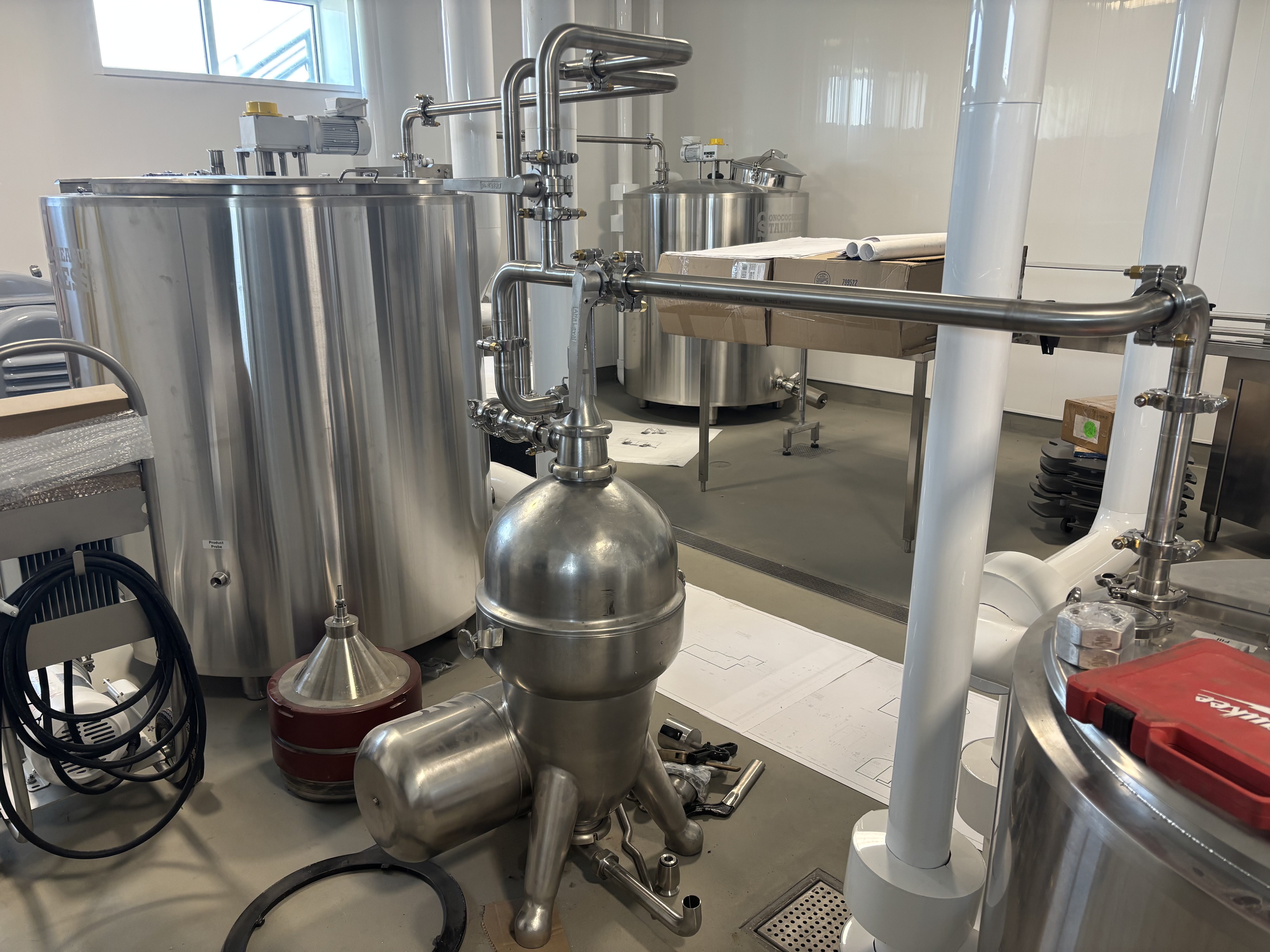Home » News » 2025 » July
News Brief
July 1, 2025 |
By: Gavin McGough
Class that has not been offered in fifty years is coming back to Northwest Missouri State University

A class which hasn’t been offered in fifty years is back in the course catalogue this fall at Northwest Missouri State University. “Dairy Products,” offered in the Agricultural Sciences Program, will soon provide students with hands-on experience processing and bottling milk, and crafting butter, ice cream, and other value-added products, all at a new micro-creamery on the Northwest Campus.
Agricultural Science Professor Billy Brooks is leading the effort. This summer, he’s not only been writing the course curriculum, but assembling the new processing facility at the school’s Agricultural Learning Center. Brooks, a Northwest graduate, grew up on a small farm in Eagleville, MO and spent a career in the Dairy Industry.
“It’s not a well-known industry, because it’s small as far as producers and processing facilities go,” Brooks said on a recent morning at the new creamery space. “But it’s a very large industry in terms of volume and value. This year here we’ll see US dairy producers produce 227 billion pounds of milk which gets processed into all sorts of the dairy products out there, from butter and nonfat dry milk to the skim milk that we drink.”
The new creamery is coming together around him: there are homogenizers, pasteurizing vats, milk bottlers. A butter churn is on the way. Brooks has even acquired a special license so he can drive the milk truck down the gravel road from the campus farm. Out there, the Ag department maintains a herd with about fifty heifers actively milking. Those numbers could increase, according to Brooks; the regional cooperative they sell to has been asking for more.
“Depending on how sales go here we’ve got the opportunity to use more milk [at our creamery]
as well,” Brooks says, looking ahead.
Few ag science programs offer this sort of small scale creamery experience. Most focus on larger models and industrial scales. But recently there’s been an uptick in interest around smaller, craft-oriented production. The College of The Ozarks in southern Missouri has a small creamery running as well.
Meanwhile, Brooks notes smaller farms across the US are trying new models to survive in a consolidating industry. The micro-creamery model “has helped producers add value to their product and increase their revenues, when maybe at the commodity level they weren’t going to be able to [compete] with larger farms,” he said.
Part of the University’s motivation was, says Brooks “to serve as a demonstration to other small farmers to see if this kind of concept could work.”
Students, meanwhile, could open a door into an industry which has opportunities ranging from micro-cheesemaking, to a massive international market in dry milk powder and dairy based pig feed.
For others in the region, the headline is somewhat different: as soon as this fall, you could be drinking chocolate milk which was pastured, farmed, produced and bottled right here on the Northwest Campus, from a herd of holstein, guernsey, and brown swiss heifers. It’s worth raising a glass to that.
![]()






